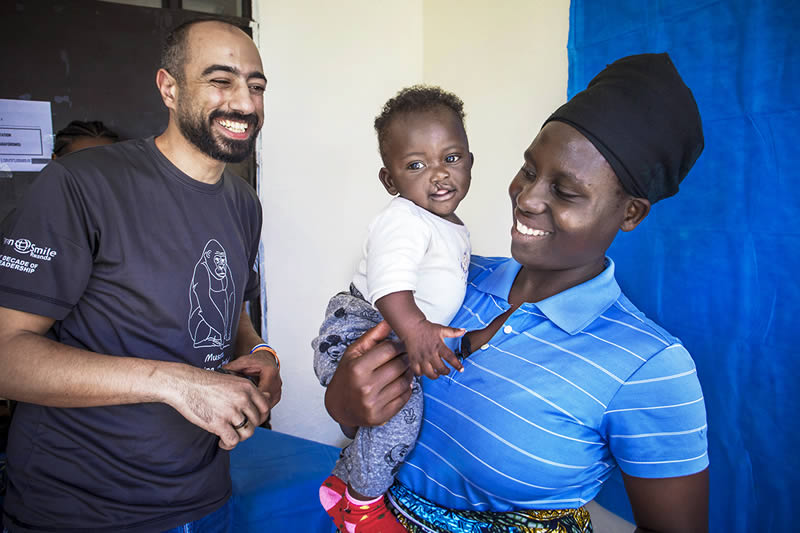Operation Smile, together with Microsoft, is piloting an AI programme to assist in patient diagnosis and educating surgeons in remote areas.
Watch as the story of Adolphe and his family, who live in Rwanda, unfolds in this new mini documentary (above) called “Beyond the Code”, produced by Partnership on AI and BBC StoryWorks Commercial Productions.
Adophe’s story
 When Adophe was born, the doctors told his mother, Nikuze, that he would have trouble eating, drinking and smiling. “No mother wants to be told their child can’t smile,” she said. “As his mother, I love him, but it’s difficult to witness how people look at him and treat him.”
When Adophe was born, the doctors told his mother, Nikuze, that he would have trouble eating, drinking and smiling. “No mother wants to be told their child can’t smile,” she said. “As his mother, I love him, but it’s difficult to witness how people look at him and treat him.”
Adolphe was born with a cleft lip and palate, a condition that affects around one in 1,000 babies. When the tissue creating the upper lip or roof of the mouth doesn’t join completely before birth, it leaves a gap or opening. Babies born with cleft conditions may have difficulty feeding, resulting in malnutrition. They may also be more susceptible to ear infections and hearing problems. As they grow, speech and dental problems are common.
Lack of resources
In under-resourced countries like Rwanda, there aren’t enough surgeons to perform cleft surgery. “In well-trained hands, these surgeries are not challenging,” says Dr. Faustin Ntirenganya, a reconstructive plastic surgeon with Operation Smile in Rwanda, “but we [in Rwanda] are lacking surgeons and sometimes nurses and anesthesiologists as well.”
For the past 42 years, voluntary Operation Smile surgeons have operated on more than 400,000 patients in 37 countries, expanding access to life-changing surgeries and comprehensive care, free of charge.
Constantly evolving
“If I could describe Operation Smile in one word it would be ‘evolving,’” said Dr. Caroline Yao, Plastic Surgeon and SVP Patient Metrics & Evaluation, Operation Smile. “We are constantly evolving to best serve our patients. The integration of AI into cleft care, currently being piloted, supports our mission to create sustainable solutions and reinforces our commitment to drive innovation in global healthcare.”
A special thank you to everyone involved in this project, including Microsoft, Partnership on AI, University of Rwanda, Rwandan Ministry of Health, the Ruhengeri Hospital, and Musanze District for their support in making our work and this film possible.
